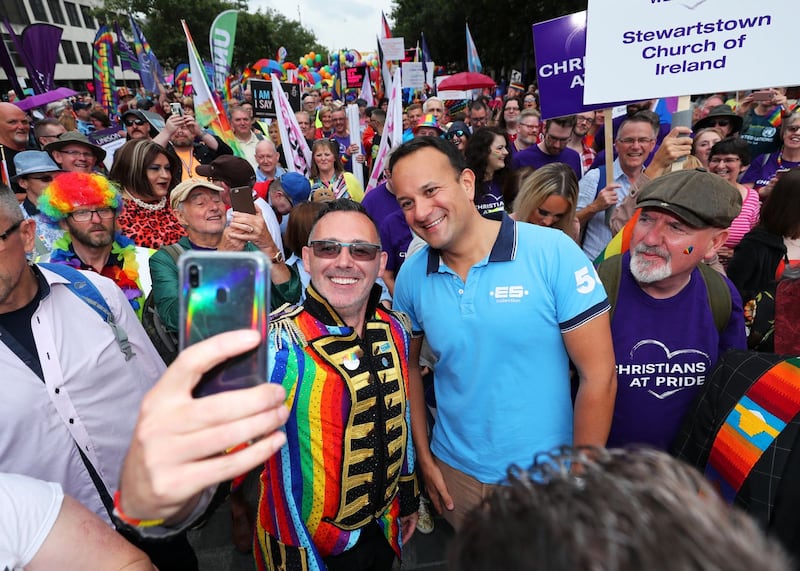It’s never a good look to get a job when you’re the only candidate. Maybe Simon Harris is happy he didn’t face a contest to be taoiseach, but surely he must have wondered: ”So why does nobody else want this job?”
Could it be the unresolved housing crisis, the disintegration of the health service, the growing street protests over immigration or the likelihood of another tanking in the next round of elections in the summer?
Harris hasn’t had a big profile up north, not having expressed enough opinions to offend anyone yet, but there’s plenty of time.
Hopefully there won’t be any gaffes on the scale of his self-described “awful boo-boo” when he thought Covid-19 meant there’d been 18 earlier varieties. He was, ahem, health minister at the time.

Does he have a hard act to follow? I had preferred Simon Coveney to win the FG leadership contest over Leo Varadkar as he seemed to have a surer touch.
But I did see it as positive to have a taoiseach who was relatively young, gay and half-Indian in heritage as it seemed emblematic of the new modern Ireland vibe. The successful referenda on equal marriage and abortion reinforced that message.
I remember the loud cheers Varadkar got in Belfast city centre at the Pride march when it seemed like he was indeed breaking new ground. But he could appear condescending towards opponents and his interaction with the Sinn Féin leader, Mary Lou McDonald, in the Dáil was often churlish and nasty beyond normal political disagreement.

However, he rose in my estimation over his handling of Brexit when he ran rings round the thoroughly disreputable Boris Johnson, who allegedly said “Why isn’t he called Murphy, like the rest of them?”
His speech at the White House last week, when he criticised US policy on Israel, must have had them choking on their shamrock-iced shortbread, but power to him for delivering it.
The loss of the two latest incomprehensible referenda probably hastened his departure and his legacy is undoubtedly a mixed one. But let’s face it, anyone who arouses such vitriol from Jim Allister can’t be all bad.

*********
Until I heard the item on Talkback, I’d never heard of the baby loss certificates which have been introduced in England for parents who’ve experienced a loss of pregnancy before 24 weeks. But I applaud the idea and hope Stormont introduces it here.
Like the very many who’ve suffered a miscarriage in the past, that feeling of sadness over a life not completed never really leaves you.

Mine happened more than 30 years ago, between the birth of my first and second sons. At just 10 weeks’ gestation, it was too early to know whether it was a boy or a girl, so there was no name to recall.
[ BBC’s Emma Barnett feels ‘almost vindicated’ by having proof of her baby lossOpens in new window ]
The news was broken to me with kindness and compassion by my obstetrician, the late Jim Dornan. He didn’t treat it like a clinical event or “just one of those things”, but a real bereavement. Like many mothers to be, I’d been a bit superstitious about announcing my pregnancy too soon, so only my close relatives and friends knew when it was lost.
I was lucky to end up with three healthy children, all grown up now. But you still never forget the one that didn’t make it.
At the back of my wardrobe is a small white box containing the only scan picture I have of that pregnancy. I put a small teddy in the box too, to acknowledge the life that never started. It’s all I have. So a certificate that gives it official recognition is a lot more than a gesture.
The scheme is entirely voluntary and at the moment is only available to either parent backdated to September 1 2018. There is a possibility it will be extended in the future for miscarriages before that date. I hope it will.










